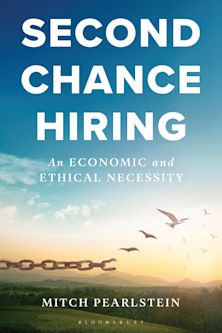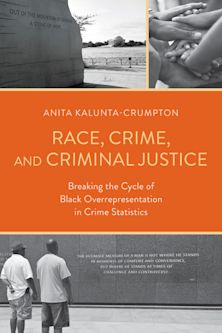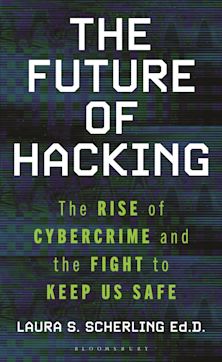- Home
- ACADEMIC
- Criminology
- Criminology - Other
- Police-Related Deaths in the United States
This product is usually dispatched within 1 week
- Delivery and returns info
-
Free CA delivery on orders $40 or over
You must sign in to add this item to your wishlist. Please sign in or create an account
Description
To understand police related deaths in the US, we need to understand the structures and systems that enable police to operate in the way they do. Giving voice to a previously unheard group in society, this book articulates the experiences of the families of those who died after police contact. David Baker considers the disproportionate number of deaths in marginalized communities, for example: people of color, people who are mentally unwell, and LGBTQ people. Each chapter begins with a short case study drawn from this qualitative research to humanize the story of the person who died and put the key issues into context. By examining these deaths and the investigatory processes that follow, Baker argues that an increasingly aggressive police mindset allied with relatively toothless regulatory frameworks effectively lead to police being enabled by the criminal justice system to use lethal force with relative impunity. Baker combines his qualitative research with the wide base of existing literature on police use of force in the US and maintains that the effects of these deaths go beyond merely policing and criminal justice but are corroding the core fabric of American society.
Table of Contents
Chapter 2: Suspect Populations
Chapter 3: They Musta Done Somethin'
Chapter 4: Move On, Nothing to See Here
Chapter 5: Blue Codes and Bad Apples
Chapter 6: Walk in My Shoes
Chapter 7: Business as Usual?
Product details
| Published | May 25 2021 |
|---|---|
| Format | Hardback |
| Edition | 1st |
| Extent | 184 |
| ISBN | 9781793611574 |
| Imprint | Lexington Books |
| Dimensions | 228 x 164 mm |
| Series | Policing Perspectives and Challenges in the Twenty-First Century |
| Publisher | Bloomsbury Publishing |
About the contributors
Reviews
-
Police-Related Deaths in the United States is a thought-provoking read that makes an important contribution towards challenging the lack of visibility which dominates this area. The approach of engaging directly with bereaved families assists in providing a welcome humanization of the deceased and valuing the voices of these families. In addition, the book occupies an important role in recognizing the prominent issues surrounding the various constructs, structures and systems that can be challenged in order to assist in a much-required move beyond the individualization of these deaths.
British Journal of Criminology
-
There is a lot of information and discussion about this topic from all sides of the political spectrum, and it can be hard for even a committed follower of these issues to parse out the important arguments, nuance and details. Baker's book does that with great perspicacity. It is a must-read for anyone interested, however peripherally, in policing in the US and beyond.
International Journal for Crime, Justice and Social Democracy
-
Any reasonable person can conclude that some needless police killings have occurred, such as those of Mike Brown, George Floyd, Eric Garner, and 13-year-old Adam Toledo. Are these incidents outliers, rare and regrettable exceptions to established police procedures? After studying police-related deaths in England and Wales, Baker turns his research to police-related mortality in the US. The author investigates an overlooked audience for insights: families of the decedents. Baker's important book argues that every police-related death deserves the same forensic scrutiny as a typical homicide in which police are not involved as actors. Expanded use of body-worn and dashboard cameras, closer scrutiny of violence-prone officers, and training on responses to vulnerable groups are proposed as police management strategies. Between 2005 and 2017, an estimated 13,000 police-related deaths occurred. Few police officers were disciplined or prosecuted for these deaths, even though many victims were shot in the back, and about one-third of them had mental health issues. Certainly, police officers sometimes face life-or-death decisions and must protect themselves. However, officer trainees spend an average of 111 hours on guns and self-defense and only 9 on mediation/conflict resolution. Recommended. Advanced undergraduates through faculty; professionals.
Choice Reviews
-
David Baker’s 154-page book attempts to explain why police shootings are on the rise, and whether race is a pertinent construct in these police related deaths. Police Related Deaths in the United States is the result of field-based research funded by a Fulbright scholarship. In eras gone bye, many times a shooting death of an individual was played out in the newspapers by journalists, seeking to grab headlines, and vilifying the shooting victim. However, over the years, with the existence of cell phone cameras and so on, and federal agencies investigating state and city agencies, conclusions cannot be reached as quickly as was once the case.
Criminal Law and Criminal Justice Books
-
This is an important book and a "must-read" for students of policing, race, politics, law, and criminal justice in the US and beyond.
Policing & Society
-
David Baker's rich qualitative analysis deeply provokes any reader interested in the intersections of policing and justice, governance and equality. The voices of surviving family members find full expression in this path-breaking volume.
Bruce A. Arrigo, University of North Carolina at Charlotte

ONLINE RESOURCES
Bloomsbury Collections
This book is available on Bloomsbury Collections where your library has access.


































